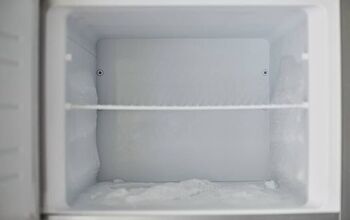How Much Does A Sewer Smoke Test Cost? (Find Out Now!)

Your sewage line needs constant maintenance to function correctly. But occasionally, you need a smoke test to find leaks and fix problems. So, how much does a sewer smoke test cost? Better yet, can you do it yourself?
The average sewer smoke test runs about $2,500, depending on several factors. You can complete small tests for as little as $500. However, larger sewage systems may require a significant investment. And some sewer smoke tests can cost as much as $4,000.
Do You Need Sewer and Plumbing Inspection Services?
Get free, zero-commitment quotes from pro contractors near you.

What Does a Smoke Test Do in Plumbing?
Smoke testing for sewers is a simple process. However, professionals usually handle it because there are some dangers involved. But you can do the job yourself if you have the right tools and understand how smoke tests work.
First, plumbers inject thick smoke into the sewer line. That smoke is artificially produced, which means nothing is on fire. Then, you plug the end pipes to trap the smoke. And that’s how you discover sewage leaks and other issues within the system.
Plumbing professionals use smoke tests to avoid more costly assessments. They also smoke test sewer lines before giving price quotes for repairs. So, your estimate depends on whether or not the smoke escapes the pipe in the correct places.
NOTE: Sewage lines in good condition will hold the smoke and release it through designated maintenance holes and vents.
How Does a Sewer Smoke Test Work?
Sewage line smoke tests work because the smoke has a low density. It also carries virtually no mass. That means smoke can pass through clogged pipes without obstructing the path or busting the lines. Thus, it’s one of the most preferred maintenance methods other than using a sewer scope.
You or your plumber can force the smoke-filled air through the system and then observe where it goes. The process doesn’t take long, and the results are relatively accurate. With the air under pressure, your mainline fills up quickly. And after that, you can determine any issues right away.
NOTE: Yearly sewer smoke tests can help you prevent damage and avoid expensive repairs.
Is a Smoke Test the Best Way to Find a Leak in a Sewage Line?
In general, smoke tests are the least invasive step during sewer line maintenance. These tests require little to no digging, and plumbers can usually finish the assessment within hours. You can even stay on the property while the test is in session because the smoke is non-toxic.
Sewer smoke tests are extra beneficial when combined with trenchless sewer repair (TSR). Both methods can help homeowners save time and money. Plus, TSR requires minimal digging as well. And that goes even for sewage pipes that you bury deep underground.
However, plumbers can use a wide variety of techniques to troubleshoot leaky pipes. So, there are other options that you can explore. One of those options is called the rubber ball test. But the rubber ball test can be far more invasive, time-consuming, and expensive.
Rubber ball testing for sewage lines isn’t easy either. Plumbers take an inflatable rubber ball and connect it to a long air hose. Then, they insert it into your mainline to root for obstructions. After that, plumbers plug the system manually by inflating the ball so that no water can get past it.
NOTE: You can also use the rubber ball test with trenchless sewer repair, so ask your plumber for more information.
How Do You Test a Sewer with Smoke?
You essentially force smokey air through your sewage pipes and out the other side. But the smoke must be under pressure to travel the length of your lines. So, it’s best to hire a plumber because it can be dangerous to work with pressurized air.
Meanwhile, the mainline of your sewage system fills up fast. Then, the smoke pushes past any obstructions to fill up the connected pipes. That means you can probably do a smoke test without special plumbing equipment. You just need enough force to overcome atmospheric pressure and get the smoke moving.
Is Sewer Smoke Testing Safe?
Inspectors sometimes call sewer smoke tests “smoke bombs,” which can sound intimidating. But there is little to no danger involved with conducting this type of assessment. That’s because the smoke is not only non-toxic, but it’s odorless and colorless as well.
In other words, smoke tests for sewers won’t damage your property, harm your animals, or cause injury in any way. They don’t create a fire hazard, and they seldom disrupt neighbors who connect to the same system. However, you should always tell people about your intentions because surprise smoke tests aren’t enjoyable.
How Do I Find a Leak in My Sewer Vent Pipe?
A giant smoke bomb won’t work for every home, and it can only determine exterior leaks anyway. But you can do an interior smoke test to find leaks inside your house. So, here are the five steps you should follow after discussion options with a plumber:
Step 1: Gain Access to the Drains
Open up your drain system at the section where you clean it out. Remember, that location can be different in each house.
Step 2: Block the Outflow
Next, plug the sewer pipe. Try to obstruct the flow of water on the outflow side near the cleanout opening.
Step 3: Attach a Smoke Machine
Fasten your smoke generator to the cleanout opening. Then, turn it on and let the smoke fill the pipes.
Step 4: Block the Sewer Vent on the Roof
Be sure to clean the sewer vent on your roof (if you have one). That way, the smoke stays inside your system until you let it out.
Step 5: Look for Escaping Smoke
Observe the openings in your system to discover points of escape. Those escape points are where sewage leaks from the pipes.
If you still have trouble pinpointing the source of sewage leaks after a smoke test, contact a plumber for more help. You might have a bigger problem on your hands. And it’s wise to find it and fix it as soon as possible.
What Happens When Smoke Escapes Sewer Pipes?
When smoke escapes blocked sewer pipes, it means there’s a leak somewhere along the line. The larger the billow of smoke, the larger the crack is likely to be. So, small streams of smoky air usually indicate tiny leaks. But vast plumes of smoke mean there’s a crucial issue somewhere in the system.
TIP: Some sewage line leaks can cause toxic substances and waste to seep into the nearby groundwater.
Related Questions
How Do You Check for Sewer Smell?
Does your basement smell like a sewer when you go down there? The stench might be caused by a sewage leak somewhere in your system. So, check for odors elsewhere in the house. Sniff sink drains, ask guests if they smell anything, and hire a plumber if you have other questions.
Who Does the Smoke Testing?
Plumbers are usually the ones who do smoke testing on sewage systems. That’s because they have all the necessary gear for each assessment. Plus, licensed plumbers also know what to do if they discover a leak in your pipes. Meanwhile, most homeowners don’t.Homeowners can still conduct a sewer smoke test whenever they want, though. But some states may require permission to test systems that connect to other lines. So, talk to an expert and make sure your plans are legal where you live.
Why Does My House Smell Like Sewage When It Rains?
Heavy rains can cause your sewer to back up. And if your sump pump isn’t large or strong enough, the smell of sewage could waft around your home. That’s because rainy weather can flood sewage lines in your community. Then, the water has nowhere else to go but back into your house.
Does Homeowners Insurance Pay for Sewer Smoke Testing?
All homeowners insurance companies are different. So, some may cover sewage smoke testing while others may not. Be sure to contact your policy provider for specific information about your coverages and limitations.Most policies include repair for sewer line problems by natural disasters or no-fault accidents. But they might not cover your repair if the cause was negligence. Also, only a handful of insurance providers cover tree root infiltration or damage from unauthorized digging. So, watch out where you bury your sewer pipes.
Do You Need Sewer and Plumbing Inspection Services?
Get free, zero-commitment quotes from pro contractors near you.

Maintain Your Sewer Lines the Easy Way
Taking care of a home isn’t always easy, especially when your sewer lines need repair. So, start small and work up from there. Conduct a sewer smoke test to find the leaks in your system. Then, use non-destructive tactics like trenchless sewer repair to fix the problem faster. And don’t forget to discuss your options with a plumber first.
Related Guides

Tiffany Nichols specializes in aesthetics, design, marketing, and manufacturing. She's a copywriter and editor for several home renovation companies in the U.S. and works alongside some of the biggest names in the industry. Her hobbies include architecture, art, mental health, and fashion.
More by Tiffany Nichols



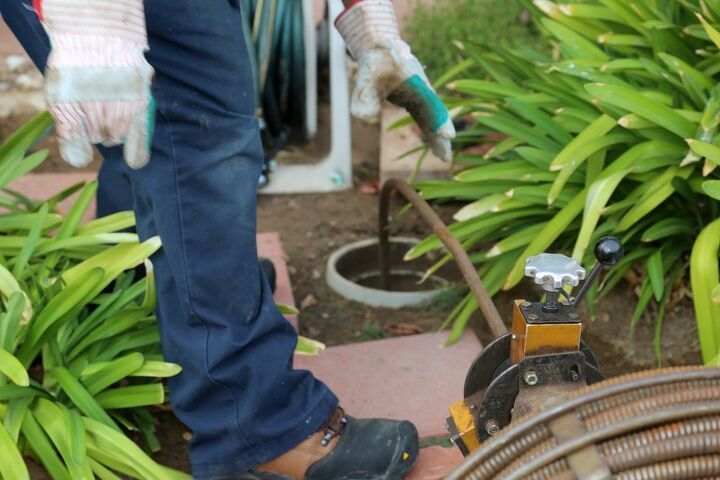








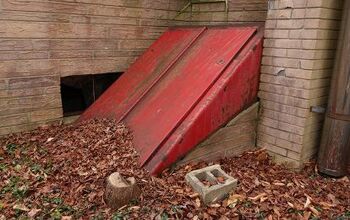


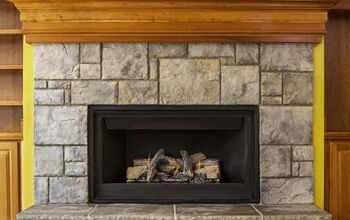
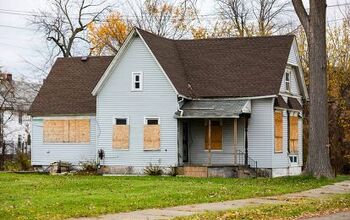




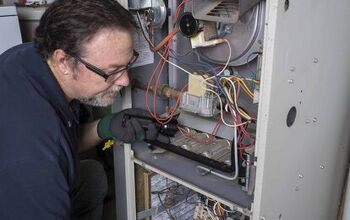
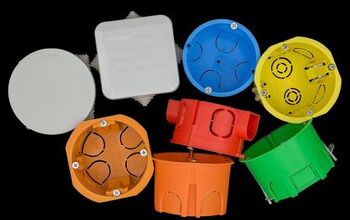

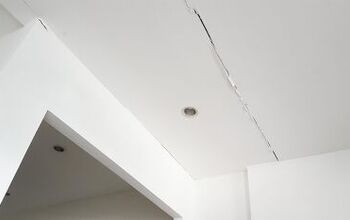
![Cost To Drill A Well [Pricing Per Foot & Cost By State]](https://cdn-fastly.upgradedhome.com/media/2023/07/31/9074980/cost-to-drill-a-well-pricing-per-foot-cost-by-state.jpg?size=350x220)
![12 Washing Machine Brands to Avoid [with Recall Data]](https://cdn-fastly.upgradedhome.com/media/2023/07/31/9075781/12-washing-machine-brands-to-avoid-with-recall-data.jpg?size=350x220)
